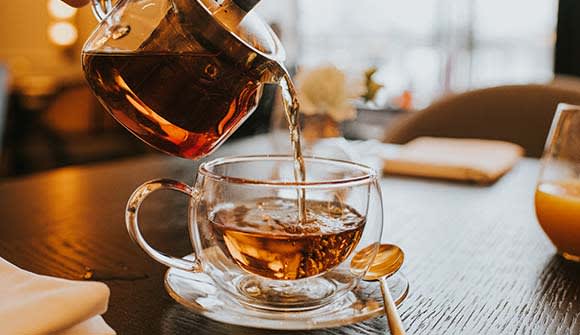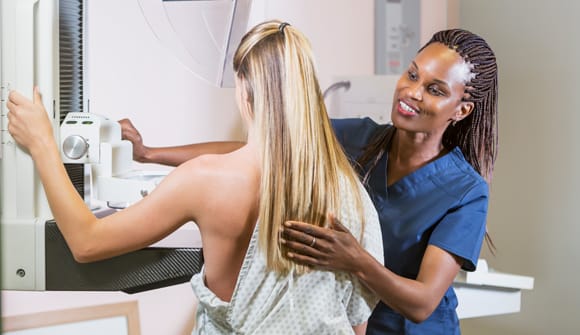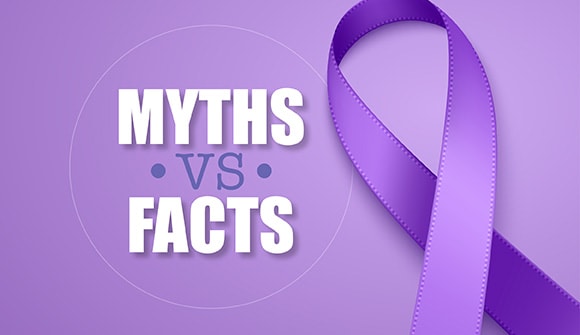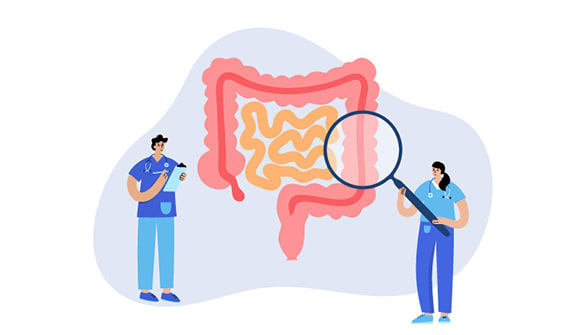Can tea prevent cancer?
The protective power of antioxidants.
Article Date:

You may view green tea as a trendy café order, but could it also offer cancer-blocking health benefits with each sip?
“Tea can be a great source of antioxidants, which neutralize free radicals in your body that can cause inflammation. These substances help protect healthy cells from damage and dysfunction, such as cancer. Though more research is needed before claiming that tea prevents cancer, it can definitely be part of a healthy diet,” said Anna Stallard, RD, an oncology dietitian at Baptist MD Anderson Cancer Center.
Most of the research on tea and cancer prevention has focused on the natural antioxidant epigallocatechin-3-gallate (EGCG), which in some studies was found to reduce risk, particularly of bladder cancer.
“Before adding green or herbal tea to your diet, check with your primary care physician or specialist(s) to make sure the ingredients won’t interact with any pre-existing conditions or prescription medications,” Stallard said. “This is especially important if you already have cancer, as too many antioxidants may be detrimental if you’re undergoing chemotherapy.”
Buy the real deal
If you’re trying to reduce your cancer risk with tea, know that not all leaves are the same.
“Levels of EGCG vary depending on how the tea is processed. The more the leaves are oxidized – when the cells are exposed to oxygen contributing to the tea color and flavor – the less EGCG they contain. Green tea has the highest amount because the oxidation process is stopped early. Black tea is completely oxidized and, as a result, has much lower levels,” Stallard said.
You also want to make sure you’re buying real tea.
“Herbal teas are not true teas because they're not made from the tea plant, and while they still have benefits, they don’t contain EGCG. Your box of tea should have green, white or black tea listed as an ingredient.”
Don’t dehydrate
Antioxidants get removed in the decaffeinating process, so caffeine-free teas may have lower levels. If you choose to consume caffeine, know it acts as a diuretic and can be dehydrating. It’s important to drink equal amounts of caffeine-free fluids to compensate.
Eat balanced
There’s no such thing as a perfect food or beverage, it’s all about balance when it comes to eating, Stallard explained. That goes for caffeine, too.
“Tea generally contains less than coffee. Certain conditions such as cardiovascular disease may require someone to avoid caffeine. Otherwise, a small amount isn’t harmful, especially when paired with the antioxidants in tea,” she said.
You can also find natural antioxidants in fruits, vegetables and whole grains.
“Tea is just one part of a wholesome diet,” Stallard said. Achieving and maintaining a healthy body weight, incorporating at least five servings of fruits and vegetables, limiting red meat, avoiding processed foods, and including whole grains are all important components to health.”
If you’re looking for ways to lower your risk of cancer and other diseases, your primary care physician is a good place to start. To find the right one for you, call 904.202.4YOU.
Source: MD Anderson Cancer Center



